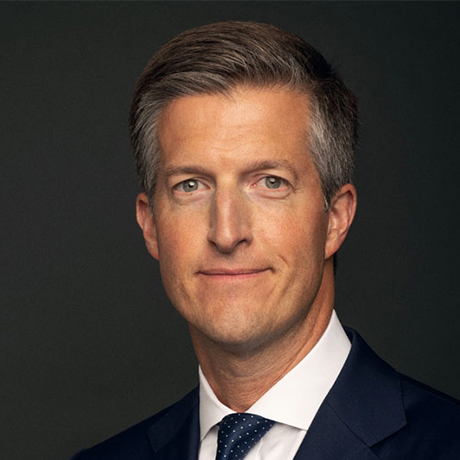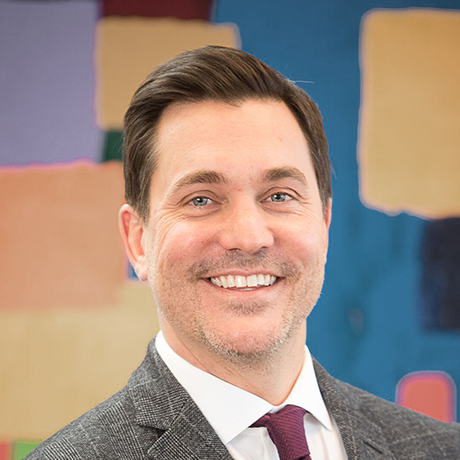Market Volatility
The Capital Group RIA Advisory Board is comprised of a group of influential RIAs, brought together to provide insight that can help advisors build their business and optimize their practices to meet current and future client needs.
The initial shock and volatility caused by the global spread of COVID-19 is giving way to discussions about how we live and work in a pandemic-altered world. As communities think about how and when to reopen societies at large, we surveyed a few members of Capital Group’s inaugural RIA Advisory Board ─ convened in a virtual launch last month ─ to get a sense of expected changes in the RIA industry. Here’s what they had to say:
1. Expect more virtual client meetings
The long-held belief in the advisory business that clients would balk at online meetings is being successfully challenged ─ thanks to grandchildren. “Guess what? Grandma’s talking to the kids and grandkids once a week on Zoom,” said David DeVoe, managing director and founder of DeVoe & Company, and an RIA board member. “Now you have all these people who were not tech savvy with a higher degree of comfort in having a conference call.”
With all nonessential travel suspended and clients being comfortable with virtual meetings, advisors are more productive than ever. “Now you could take half a dozen client meetings instead of the day-and-a-half travel with a stay over for one client meeting,” said Kurt Miscinski, an RIA board member and partner, president and chief executive officer of Cerity Partners.
DeVoe says the industry will be in an “awkward stage” for at least the next year as RIAs find the right balance between virtual and in-person contact. “The ideal way to incorporate this evolving technology sophistication is probably to be more tailored to what each client needs,” he added.
For example, hosting family meetings where RIAs meet with clients and their families for daylong planning sessions would be difficult to do online. “It’s hard to do personality tests and values cards when you’re not in the room,” said Michael Novak, managing partner at Wellspring Financial Advisors.
What this means for RIAs:
Embrace the uncertainty and disruption of doing business as usual, and don’t underestimate the willingness of previously tech-phobic clients to jump online.
2. WFH is here to stay ─ at least one day a week
“I hate to say it but [transitioning to working from home] was seamless,” Novak said. “From an operational standpoint, we are getting just as much, if not more, work done as before.”
Prior to the pandemic, Novak said they were considering new office space. “Now we’re ‘let’s think about this six-foot world,’” he said. “Maybe we don’t need to be more dense.”
Embracing a more flexible office culture could help recruit and retain younger advisors, who are more interested in working for companies that support a work-life balance. “When I grew up in the business, you worked long hours and it had to be in the office,” Miscinski said. “Now, it’s how do you create career paths that can … [also] offer the flexibility to raise a family.”
On the flip side, some of the nearly 33% of RIAs who say they are planning to retire in a decade may decide to stick around a little longer.1 “They might think, ‘I could go on another five years if I could do this from my home in Arizona or Florida,’” he said.
What this means for RIAs:
This is a good time to evaluate the firm’s long-term real estate needs. Survey employees regarding their interest in working from home, even for one day a week. A more flexible work culture could help to boost morale and also help recruit new talent.
3. Adapting services to meet a changed investor landscape
DeVoe says his firm, which helps other RIA firms with valuations, mergers and acquisitions, and other business needs, has ramped up its existing client engagement programs such as (now) weekly webinars. What began as fielding calls from CEOs seeking to bend an ear has resulted in hourly consulting ─ something the firm had never done before.
“Historically, we’d say no. With COVID, we are getting creative with how we can support the RIA community,” he said. “It’s lonely at the top and they need to make decisions, and they say, ‘I want to ask someone that I trust.’”
Until the start of this year, the M&A market in the RIA industry was record-hot for the sixth year in a row in 2019, with 132 deals ─ a 31% increase from the 101 transactions in the year before, according to the Nuveen/DeVoe & Company RIA Deal Book.
While that activity has understandably cooled for the moment, DeVoe expects the brisk deal-making to resume as soon as six months from now. “We’re still getting a lot of questions on valuations,” he said.
In the meantime, he’s watching to see how a volatile market and an economy in recession will impact RIAs’ bottom lines. He estimates that a roughly 26% decline in equity valuations has meant a 13% compression in revenue and assets under management and a 46% decrease in cash flow for RIAs.
Speaking of downward pressure on fees, if RIAs are able to reduce expenses through greater efficiencies ─ like those gained when swapping virtual meetings for reduced office rents ─ does that suggest advisors should price their services accordingly? “If you’re a paying client, are you thinking, maybe the fee should go down?” Miscinski asks. “Even with greater tech efficiencies, I don’t think I’m worth less.”
What this means for RIAs:
As the market volatility began, many RIAs stepped up communications efforts to address client concerns and provide context and insight to help them better evaluate the investment climate. As you speak to clients, ask them what they find helpful. Use that feedback to help guide how you could adapt your services to meet those needs.
4. Relationships are important ─ among colleagues, too
Strong relationships with clients are considered the bedrock of any advisory business. Miscinski says the pandemic has reminded him that actively nurturing closer ties within the firm are important, too. “Our internal comms were largely done through call-in numbers when you didn’t see people,” he said. “We were spewing a bunch of information at them.”
Certainly, our current isolated environment has created a greater appetite for more human interaction, and Miscinski says he’s watched employees enthusiastically join video conferences in the last few months. Still, he’s realized that the firm could better promote employee engagement.
“There were barriers that we created for ourselves,” he said. People who had never spoken to each other despite being at the same firm for years now do online yoga classes together and compete in “Best Home Office” contests, he added.
“I’m just floored at how high the morale is,” he said. “It’s the highest ever at the firm.”
For 25 years, Miscinski and his wife have either attended the Kentucky Derby in Louisville, Kentucky, or thrown a race-themed party in their Chicago area home. This year, the festivities were moved online, with nearly all of the firm’s partners enthusiastically sporting traditional big hats and bow ties specifically purchased for the event.
Care packages with bourbon and other treats were delivered to each guest’s home. “Everybody [was] eating and drinking the same thing,” he said. “We wanted it to feel like a normal party.”
What this means for RIAs:
RIAs are good at focusing on client needs. The pandemic and the resulting disruption highlight the need for advisors to also focus within the firm. Leverage technology to foster camaraderie among homebound employees with contests, classes or social hours. See what’s popular and adjust as needed.
1 Cerulli U.S. RIA Marketplace, 2019
RELATED INSIGHTS
-
-
Marketing & Client Acquisition
-
Statements attributed to an individual represent the opinions of that individual as of the date published and do not necessarily reflect the opinions of Capital Group or its affiliates. This information is intended to highlight issues and should not be considered advice, an endorsement or a recommendation.
 David DeVoe
David DeVoe
 Kurt Miscinski
Kurt Miscinski
 Michael Novak
Michael Novak
